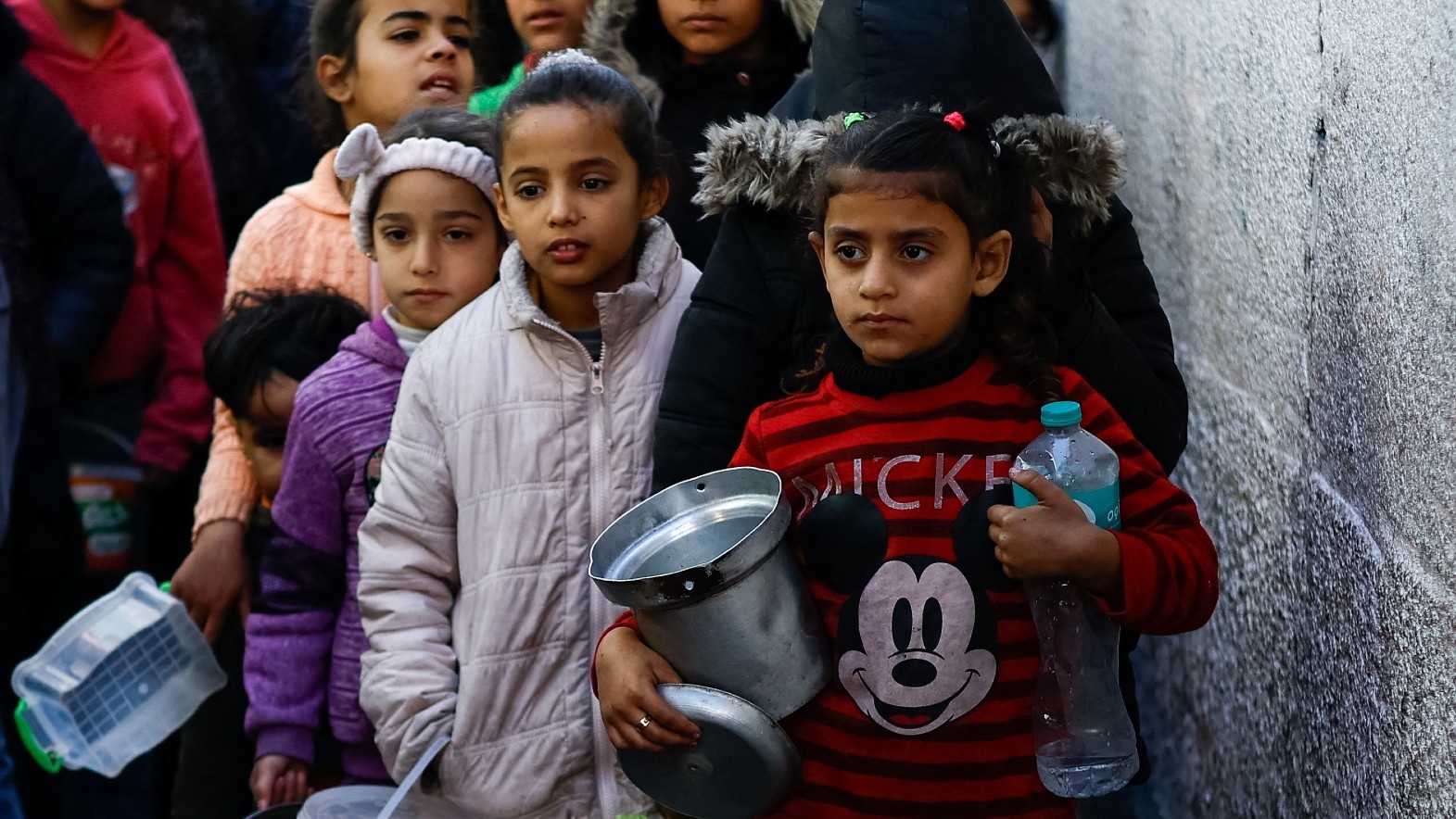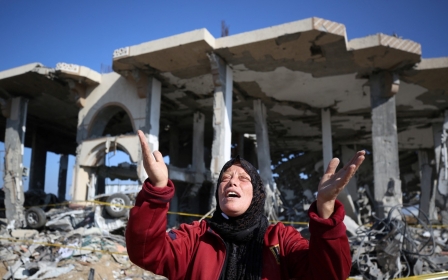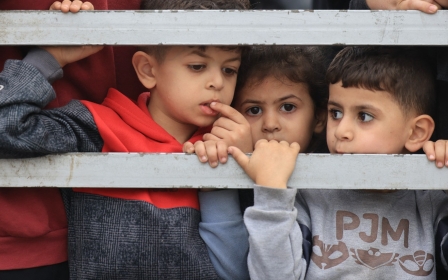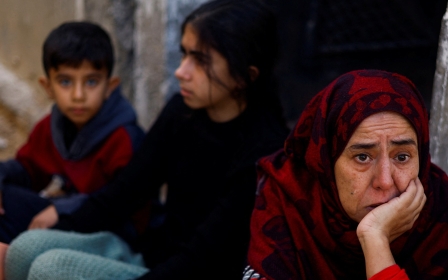War on Gaza: This is what starvation feels like. I cannot feed my children

It is difficult for most people to even begin to fathom the situation facing Palestinians in northern Gaza. Even my brother, who has been displaced in the south, was stunned to learn of the severity of our living conditions, and the inconceivable reality to which we awaken every day.
Israel has declared total war not just on Hamas, but on the entire Palestinian population. Decades of wars against us have enabled Israel to deploy increasingly more sophisticated and horrific weapons. Each day, I hear of monstrous options being proposed by Israeli officials for my future: that I should be deported from my homeland, or killed in an atomic explosion.
Across northern Gaza, there’s nothing to eat. Since the war began, we haven’t had any fruit or vegetables. There’s no flour to make bread, no pasta to cook, no meat, no cheese, no eggs - nothing. Dry goods, such as lentils and beans, are unavailable or sold for 25 times their original price.
I watch, with great pain, the suffering of my most loved ones: my little kids begging for food, any food. My diabetic mother starves in silence. My brothers and sisters, and their children, suffer from extreme forms of hunger and starvation.
The Israeli government is also using starvation of civilians as a weapon of war in Gaza. This is a war crime, and it is happening out in the open. Senior Israeli officials have spoken publicly of their goal to deprive civilians in Gaza of food, water and fuel.
Stay informed with MEE's newsletters
Sign up to get the latest alerts, insights and analysis, starting with Turkey Unpacked
On Wednesday, the Palestinian Non-Governmental Organizations Network issued a statement noting that Palestinians, especially in northern Gaza, are living in catastrophic and inhumane conditions, having run out of basic food supplies.
“The network holds the international community fully responsible for this crisis resulting from the occupation war and its siege imposed on our people,” the statement said.
According to the United Nations, more than half a million people in Gaza today are classified as having food insecurity equivalent to famine levels of starvation.
Pain and emptiness
Israel is starving Palestinians in Gaza to death. It is deliberately preventing food trucks from reaching people, while stored food reserves ran out some time ago. Israel’s starvation of children, women, men and elderly people is inconceivable; it is as aggressive and deadly as the bombs, only this is a slow, excruciating death.
The scene appears to have been taken from a horror movie. We look like walking skeletons: skinny and pale from the constant lack of food, sleep deprivation and ongoing suffering of loss, death and destruction.
Follow Middle East Eye's live coverage of the Israel-Palestine war
We have a little bit of rice, as it was stored for the holy month of Ramadan - but even that is running out. We eat just one small meal of rice a day, because we must ration what we have. My body is pale and has no energy. It is losing all vital signs of life.
When we are hungry, instead of eating, we fall asleep. We no longer know what is real and what is not, except for our suffering.
The children implore us, crying for some chicken, sweets or an apple. We look at each other, heartbroken and hopeless.
The children implore us, crying for some chicken, sweets or an apple. We look at each other, heartbroken and hopeless.
Most days we don’t see the sun because it is not safe to go outside. Israel’s constant bombardment of Palestinian neighbourhoods, along with snipers targeting civilians searching for food, make any trip outside the house potentially deadly.
I haven’t eaten anything green in three months. My body is falling apart from the lack of protein. I feel weak and dizzy. I feel pain. I feel empty.
No aid trucks arrive in northern Gaza, even as the south still receives some. I spend days looking for food and asking around; when I finally find something, it is one bag of flour, which should be enough to feed the 27 people in our house for up to a week. The bag would usually cost 30 shekels ($8), but it is now sold for 700-900 shekels ($189-$243) - and we cannot afford it.
These markups apply to all types of food; if available, they are unaffordable. When you come across someone on the street who has managed to find food, he tries to hide it.
Food must be cooked, but there is no gas, and most people now cook over fires. We collect the wood from our demolished homes: our closets, furniture and children’s wooden toys.
New nightmares
Starvation does not just destroy the body physically. It also leads to psychological and emotional changes, such as depression and anxiety. Today in Gaza, this is happening all around us.
Israel’s deliberate choice to starve the Gaza Strip has been carried out as the world watches. We need an immediate ceasefire, but even more urgently, we need an end to Israel’s war of starvation.
Every day I am forced to repeat this horror movie, in which I never wanted to play a role. I don’t know whether I will survive this war; whether Palestine will survive this genocide. What kind of life forces you to choose between dying of hunger, sickness, snipers or bombs?
At night, it starts to rain. I can’t sleep, thinking of the displaced people’s flooded tents. But eventually I collapse, letting in the nightmares - only to awaken a few hours later in a worse one.
The views expressed in this article belong to the author and do not necessarily reflect the editorial policy of Middle East Eye.
This article is available in French on Middle East Eye French edition.
Middle East Eye delivers independent and unrivalled coverage and analysis of the Middle East, North Africa and beyond. To learn more about republishing this content and the associated fees, please fill out this form. More about MEE can be found here.





